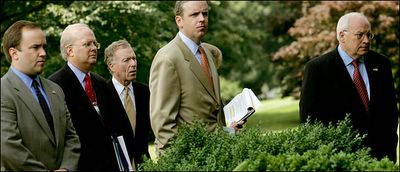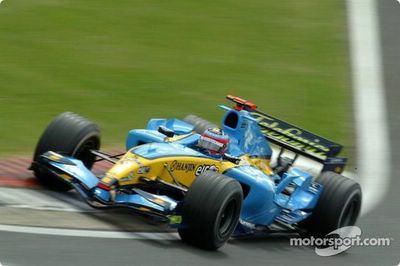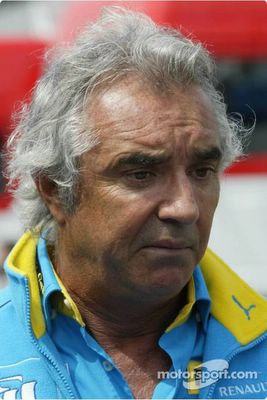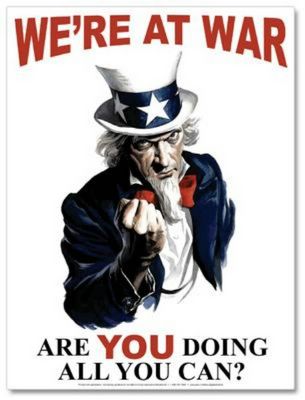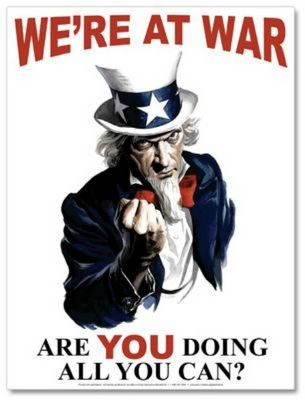Monday, July 18, 2005
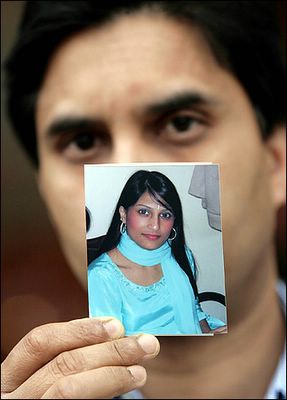
News International, via wireimage.com
Shahara Islam was a 20-year-old bank cashier
July 17, 2005
Lost in Bombings, Diverse and Promising Lives
By SARAH LYALL
LONDON, July 16 - They were mostly in their 20's, 30's and 40's. They were mostly on their way to work. They were the daughter of an Anglican bishop, the son of a Nigerian oil executive, the immigrant mother of two teenagers. Some were Muslims.
The names of the dead - Shahara Islam, Anthony Fatayi-Williams, Jamie Gordon, Ganze Gonoral, and so many more - reflect the diversity of their origins and the indiscriminate nature of the bombs that struck London a week and a half ago.
The death toll from the July 7 bombings - on three subway trains and on a No. 30 double-decker bus - stands at 55, including the bombers. The authorities have officially identified 47 of the dead.
Identification of the victims has lagged in most cases behind their families' convictions that their loved ones are dead. Part of the problem is that British procedures are slow, and inquests must be held when deaths are unnatural or violent. The difficulties are compounded by the fact that many of the bodies were jumbled together and severely damaged in the explosions.
The Identification Commission, a group of doctors, police officers and forensic scientists convened in response to the bombings, is relying on a variety of methods, including dental records, fingerprints, DNA - and even internal medical devices like pacemakers with serial numbers - to complete its task.
For friends and relatives, the agony of uncertainty has seemed almost as bad as the devastation of knowing. Many families have been left in an awkward limbo, knowing in their hearts that their lost relatives are dead, but unable to mourn properly.
One such relative was Marie Fatayi-Williams, whose son, Anthony, was still officially missing last Monday, four days after the bombing. Mrs. Fatayi-Williams stood in Upper Woburn Place, near the site of the No. 30 bus explosion, that day and gave a speech about him, saying that she had been "destroyed" by his certain death. He had not been heard from since 9:41 a.m. on July 7, she said, when he telephoned his office to say that the subway had been evacuated and that he would find another way to get to work.
"How many mothers' hearts must be maimed?" Mrs. Fatayi-Williams asked, in an anguished speech that became a striking symbol of the families' grief.
Mr. Fatayi-Williams, 26, was in many ways an embodiment of modern, postcolonial London - a "world citizen," as his mother described him. Nigerian by heritage, he grew up in London and graduated from Bradford University. But he was deeply connected to his Nigerian roots and intended to work in Nigeria someday.
Mr. Fatayi-Williams, who lived in Hendon, was an engineering executive, loved rap music and had hopes of starting a record label. His mother is a Catholic, and an oil company executive; his father, a Muslim, is a doctor. "Basically his ultimate aim was to become a politician and sort out Nigeria," his cousin Sadie Williams told The Evening Standard.
Mr. Fatayi-Williams was her "first son, my only son," his mother said, and he had promised to take care of her in her old age. "In African society, we hold on to sons," she said.
But on Friday, her son was declared dead.
As the names have been released, in dribs and drabs, portraits have been emerging of the victims. Many were young and just starting out. Shahara Islam, for instance, was a 20-year-old bank cashier, a second-generation Bengali immigrant who moved easily between the strict religious world of her parents and the secular world of Britain. She died on the No. 30 bus, her body so mangled that she had to be identified through dental records.
Jamie Gordon, 30, a fellow passenger on the bus, spent his early years in Zimbabwe, worked in finance and was planning to marry his girlfriend of seven years, Yvonne Nash. Shyanuja Parathasangary, also 30, and originally from Sri Lanka, worked for the postal service and died on the bus, too.
Other victims, like Gladys Wundowa, 50, were more established in their lives. An immigrant from Ghana, Mrs. Wundowa had two teenage children. She worked the 5 a.m. to 9 a.m. shift as a cleaner at University College London, and on July 7 left her job, as usual, to go to a class in housing management in Shoreditch. Unable to take the subway, she took the No. 30 bus.
Michelle Otto, 46, was also an immigrant - from Romania - and died on the Piccadilly Line train. She had been en route from the house she shared with her sister's family in Mill Hill to her job as a dental technician in Knightsbridge.
James Adams, 32, liked to stay in touch. At 7:30 a.m. on July 7, he called his mother to tell her he was at King's Cross station headed for work. He also sent a text message to a friend, Amanda Garatty.
That was not unusual, said Tony Garatty, who is married to Amanda and who is one of a close-knit group of Mr. Adams's friends from Bretton Baptist Church in Peterborough, Cambridgeshire.
"He would text my wife all the time when he saw something on the telly," Mr. Garatty said in an interview. "What's really going to hit me is when football season starts, because if he saw anything about Manchester United he'd text me and say, 'What about this?' "
Mr. Adams, a mortgage consultant with a dry wit, had a wide range of friends: David Lammy, a member of Parliament who had known him since grade school; the Rev. John Boyers, the chaplain of the Manchester United soccer team, who met him after Mr. Adams sent a letter introducing himself; and Mr. Garatty, a 47-year-old father of two who was his partner in crime at rock concerts and soccer games.
Recently, the two men spent a Saturday together at the Live 8 concert for Africa in Hyde Park. Mr. Adams was late in picking up Mr. Garatty - he was known for that, too - but he more than made up for it by supplying not only binoculars but also two little folding stools in case they got tired.
They did not. Mr. Adams stood for the entire concert and was at his happiest when Annie Lennox appeared. "At one point he said, 'I hope she sings - ' and then she started to play the intro to the song, 'Sweet Dreams (Are Made of This),' " Mr. Garatty said.
"We were sort of saying, 'Wow, we're here and this is history,' " he said.
Mr. Adams, believed to have been on the bombed Piccadilly Line train, is still officially missing.
Ciaran Cassidy was an unusual combination, a hard-core Arsenal soccer fan who also seemed to be one of Earth's cheeriest shop assistants. Along Chancery Lane, where he worked in the Bridge & Co. stationery store, Mr. Cassidy, 22, was known as a young man who could chat about anything to anyone, who enthusiastically made copies of even the most tedious documents, and who invariably urged customers to partake of the free jelly beans in the jar on the counter.
So the news of his death affected the little neighborhood along the road in London's legal district, where Mr. Cassidy had become, in however fleeting a way, part of the fabric of daily life. His boss, Mike Harris, set up a book of condolence, and dozens of people stopped by to sign it and to reminisce about Mr. Cassidy.
Mr. Cassidy, the son of an Irish postal worker and a teacher's assistant who grew up in London, had been saving for his dream trip: a year's working holiday in Australia. He spent the night before he died discussing his plans with his sister, Lisa.
"People used to say that you could never walk down the road with him because he knew so may people and would forever be stopping to talk to them," Lisa told The Standard. That certainly seemed to be the case on Chancery Lane.
"I remember him from when he started," Angela Thomson, who works in a travel agency nearby and who stopped in to sign the condolence book, said in an interview. "Such a lovely boy. He was one of life's sweet souls - he really wanted to be helpful."
"Ciaran - it's Rita here!" went one of the entries in the book, from a regular customer. "I will always come in and think of you. Will miss you."
Mr. Cassidy's body was found in the wreckage of the bombed Piccadilly Line train. His death became official on Tuesday.
Giles Hart, 55, was from Hornchurch, had a large family - three children, a wife, an 85-year-old mother who lived with them, a sister - and worked as an engineer for British Telecom in Islington. But there was much more to him. A former chairman of the Polish Solidarity Campaign of Great Britain, Mr. Hart met his future wife, Danuta Gorzynska, who had fled Poland when martial law was imposed there, in London more than 20 years ago.
He also loved books, particularly those of Lewis Carroll - he was a big fan of "Alice's Adventures in Wonderland" - and of H. G. Wells. He was chairman of the local branch of the H. G. Wells Society. On July 7, he was due to give a speech titled "The Lesser-Known Works of Lewis Carroll."
He was a humanist - one of his many other voluntary posts was as vice chairman of the local branch of the British Humanist Association - a campaigner for peace, a member of the Anti-Slavery Society, a fighter against bigotry and human rights abuses. "It is tragic that he fell victim to the very evil against which he had struggled," the family said in a statement.
Like many of the families, Mr. Hart's asked not to be contacted by the news media. "We hope his many friends and colleagues will continue with his campaigns for freedom and justice, to make the world a fairer and greener place to live in," the family said. "May he rest in peace and his ideals eventually triumph."
Mr. Hart usually took the Northern Line to work. But because of the subway closures, he got on the No. 30 bus. He was declared dead on Friday.
Copyright 2005 The New York Times Company Home Privacy Policy Search Corrections XML Help Contact Us Work for Us Back to Top

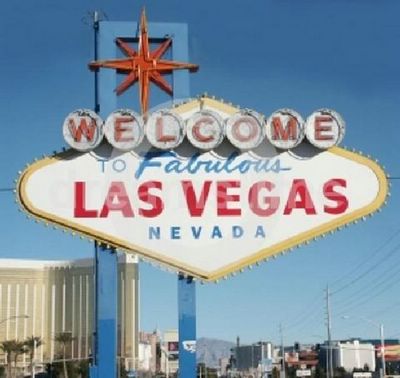
Saturday will be the 5th (Sunday will be the 6th) straight day with a high of at least 110. Back in July, 1961 we had 10 consecutive 110 degree days... and that's the record. The slight bump in humidity Friday will dry out over the weekend. Here are the numbers (I hope you're still sitting down): 114 Saturday, with some neighborhoods near 120. 113 Sunday and some neighborhoods will be near 118. Lows in the upper 80's. But have a good weekend anyway,

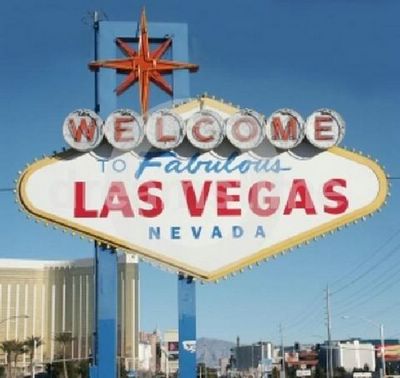
Saturday will be the 5th (Sunday will be the 6th) straight day with a high of at least 110. Back in July, 1961 we had 10 consecutive 110 degree days... and that's the record. The slight bump in humidity Friday will dry out over the weekend. Here are the numbers (I hope you're still sitting down): 114 Saturday, with some neighborhoods near 120. 113 Sunday and some neighborhoods will be near 118. Lows in the upper 80's. But have a good weekend anyway,

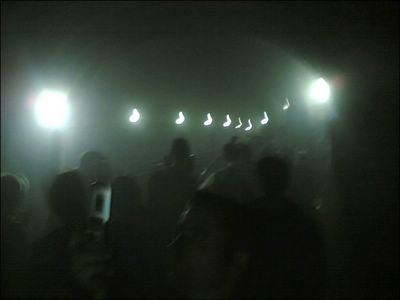
Alexander Chadwick/Associated Press
July 17, 2005
Battlefields
By RICHARD A. CLARKE
The carnage in the London Underground follows an even more horrendous attack on Madrid commuters 16 months ago. When President Bush sought recently to reassure Americans about his Iraq policy, he emphasized that we are fighting terrorists in Iraq so that we do not have to fight them here at home. Unfortunately for Britain and Spain, fighting terrorists in Iraq did not immunize them from attacks at home.
Earlier this year the administration revealed that Osama bin Laden had communicated with Abu Musab al-Zarqawi, the head of ''Al Qaeda in Mesopotamia,'' urging him to send some of his many fighters to the homelands of the United States and its coalition allies. Zarqawi's network has apparently been quite successful in recruiting new terrorists in Arab nations and in Islamic communities in Europe. Before the London attacks, the police arrested Zarqawi recruiters in Britain, Germany, Spain and elsewhere. (Among those arrested in Spain was a terrorist thought to be connected to the Madrid attacks.) Iraq acts both as a motivator for the new jihadis and as a training ground. It has replaced Afghanistan, Chechnya and Bosnia. Now, Muslim radical youth go to Iraq to prove themselves and learn the trade of terror.
A recent C.I.A. analysis reportedly concluded that those being recruited by Zarqawi are receiving better training and preparation by fighting in Iraq than previous terrorists received from bin Laden in Afghanistan. The report went on to say that these new terrorists will probably leave Iraq and practice their skills elsewhere. A Canadian Intelligence Security Service analysis reportedly says that terrorists trained in Iraq are likely to be involved in attacks in other countries. Commenting on the report, a former Canadian security officer said that terrorists are ''still planning very imaginative actions like we saw on 9/11.''
Although the United States made legal entry into the country more difficult after 9/11, it is still possible for potential terrorists to come here. Many of the new jihadis are citizens of European nations to which we grant visa-free entry. A jihadi might also come illegally, as millions of people do each year. Thus many security experts believe that it is only a matter of time until another attack occurs in the United States.
Members of the 9/11 Commission recently warned that the absence of an attack here in the last four years has created an atmosphere of complacency in which needed security improvements are given inadequate attention. Their warning should be heeded. The London Underground bombings highlighted, for example, one of the many areas where we remain vulnerable. Although the federal government has spent approximately $18 billion since 9/11 upgrading airline security, it has spent only $250 million on passenger-rail security. Any regular traveler can see the results. While I have been unable to carry a small scissors onto an aircraft, I have successfully carried a gun onto a passenger train.
In the hours after the London attacks, police officers flooded subway systems in the United States to beef up security. The fact that they had to do so is further evidence that these systems lack adequate protection. Increased use of closed-circuit cameras, uniformed guards and undercover officers in stations and on trains would reduce the likelihood of a successful attack on commuter rail lines.
The best way, however, to stop such attacks is through intelligence penetrations of terrorist circles. Only last month, almost four years after 9/11, did the administration agree to create a National Security Service within the F.B.I. to enhance our ability to perform such penetrations. It will be more years before this service is fully operational.
Why do we still find ourselves with so many domestic vulnerabilities? One major reason is that we have not spent what is necessary. When the Department of Homeland Security was created, the White House said it should be ''revenue neutral,'' i.e., no new money. Since then, homeland security spending has grown very slowly. The amount budgeted has not been based on needs assessment but on arbitrary decisions in an overall fiscal environment made difficult by skyrocketing spending in Iraq. Unfortunately, spending in Iraq will not immunize America from terrorist attacks at home any more than it did Spain or Britain.
Copyright 2005 The New York Times Company Home Privacy Policy Search Corrections XML Help Contact Us Work for Us Back to Top

Friday, July 15, 2005

Mr. Berinie Ecclestone. British Grand Prix, 2005.
All in all, this season has been gratifying since Fernando Alonso has been so incredibly quick and consistent. For his youth, he seems a very mature driver, and he appears to have the balance of his emotions and ego placed in proper perspective. In short, the guy is super talented and very cool. This is the best thing that could happen to Formula 1.
As far as Indianapolis is concerned, I believe there were unseen forces that may be quite pleased to see Formula 1 fall flat on its face here in America. Of course, when viewed from a strictly fan perspective, the entire episode was one giant farcical disappointment.
Several matters come to mind. Michelin, the internationally known and recognized tire company somehow did not do the necessary research and showed up in America without a tire that was capable of performing on the Indy track surface. Granted, Bridgestone had been at the 500, so they naturally would have had more data on the track surface and so were well advised in what compounds they had chosen prior to arriving at the Brickyard. It is astounding however, when you analyze the sequence of events. That first and foremost, a tire company participating in Motor racing at the highest level of international competition with billions of dollars involved throughout the entire enterprise, would be capable of going in blindly without having at least examined what options they might need to have or what kind of obstacles they might be expected to incur. It was not a secret that the race track had been resurfaced in some way or another which resulted in a grittier more abrasive characteristic.
Michelin shows up and discovers that the tires they have are relatively useless and worse yet they are dangerous. Ralf Schumacher goes off in a high speed shunt, and one other driver whose name escapes me now, goes out as well, and all the while Michel in have no clue. Except they do realize and admit that the safety of the drivers precludes them from simply pressing forward and acting as if everything would be alright. For this I give them a certain degree of respect.
So when the windup ensues you have the race itself, and all that it represents in terms of the perennial desire for Formula 1 to someday, somehow establish itself firmly and loyally in the minds and hearts of American racing fans.
And then you have the internecine intrigue between the intricately drawn factions of the International Grand Prix circus. Here we enter into cultural, financial, philosophical, and not the least, personal conflicts and long standing animosities.
From the Bridgestone perspective, why would they have wished to smooth over a gaffe that exposed their world's greatest rival as something of a complete incompetent?
From the FISA point of view, I suppose they felt they would open a Pandora's box of possibilities wherein which rules that are so incredibly complex, must be continuously revised and reformatted to account for so many variables within the sport and the technology that it draws from in large measure. These rules would perhaps then be the constant point of negotiation as other points of departure would come into question.
Finally, Scuderia Ferrari was showing as much compassion as the Italian Expeditionary Tank forces extended to Hailee Sallase and his vastly out numbered, camel bourne , sling shot bearing defense force in Ethiopia. Another less than memorable episode in 20th century Italian history.
FISA was in no way potent enough by way of silent persuasion to effectuate an ultimate compromise. Max Mosley would have been wise, in my opinion, to have made his way to the paddock and the negotiating table, because the entire BRAND of Formula 1 was suffer ring a devastating blow to its credibility, marketability, and general point of popular acceptance.
As it turns out, he remained somewhere in Europe, Paris I suppose, and from that distance felt safe enough while allowing Ecclestone to bear all of the justifiable ire and resentment from those fans who made their weekend around seeing a genuinely competitive International Grand Prix. They deserve, and I believe they eventually will receive, their money for admission refunded.
Furthermore, Mr. Ecclestone is one person who would have, if he were able, in and of his own will, put together a compromise solution so as to have the racing fans enjoy what they had come to see. There is no one that I know, in or out of Formula 1 who is more desirous of establishing a permanent presence and appreciation for Grand Prix racing in the U.S. than Bernie Ecclestone. He has made repeated attempts to educate, if you will, the civic leaders here in Las Vegas about the kind of product that Formula 1 confirms as unique and attended by a very high end marketing segment with disposable income far greater than what is demographically described by the NASCAR and other forms of all American motor racing.
The unfairness in regards to Ecclestone and the vents at the recent American Grand Prix, is that there are limits to what he personally can do without risking the opposite side of the critics corner wherein which he is accused of wielding totalitarian and dictatorial control over every aspect of the entire enterprise.
To my way of thinking, to the extent that in every instance where to a greater or lesser degree, "The Ecclestone as Czar model" is accurate, then the entire Formula 1 world and everyone involved in this endeavor in any way large or small, should be thankful for all of the years of incessant determination and unrelenting focus and vision with which Bernie Ecclestone has dedicated himself towards bringing together the very essence of what is accepted as the world�s premier Motor Racing series.
Most knowledgeable people with even the slightest awareness of Motor racing in general, will acknowledge that Grand Prix Formula 1 exists on a level of technical and physical challenge unlike any other form of entertainment in the world today. The very fact that Ecclestone has traveled from year to year from race to race, from airport to hotel to airplane to helicopter to jet to hotel and back around again is testimony to the superior discipline, motivation, intellect and abounding business genius that mark the achievements of this leader of the world of Grand Prix Motor Sport.
His comment about the women being advised to wear dresses the color of kitchen appliances was simply his "East End" London sense of humor flexing itself as a leit motif to a very stressful situation.
I know from first hand, personal experience that Bernie Ecclestone is a genuine humanitarian and extraordinarily generous to those he loves and cares about. He is unsparingly loyal to those loyal to him, and he is a person who has done innumerable acts of great kindness to help those less fortunate through times of overwhelming adversity.
His financial success should not be held against him, because every pound note Bernie may hold he well deserves because he has worked his butt off and taken many risks, suffered many personal setbacks and disappointments integral to the dangers of Formula 1 and survived it all to stand as the single most influential leader in the world of Motor Sport since the beginning of organized and sanctioned competition.
No one that I can identify comes even close to having been able to accomplish so much from every angle to see that so many people realized so much more as drivers, team owners, promoters, journalists, photographers, and accessory entrepreneurs of every ancillary stripe.
All persons related to this unique form of incredible excitement and test of competitive skill and technical expertise owe an eternal debt of gratitude to Mr. Ecclestone, and those persons who have character and real integrity within the sport itself realize this only too well.
Without him, Grand Prix Motor Racing as we know it today, would not exist. Case Closed
Michael P. Whelan Las Vegas, July 12, 2005.

Friday, July 08, 2005
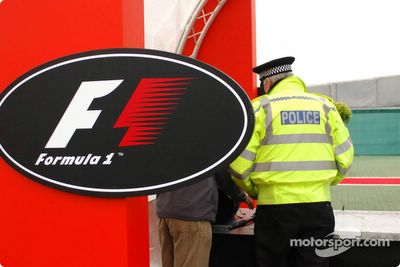
Write Line
FIA and Michelin Teams: A Letter of Concern
2005-06-24
Kaylie Broughton
The FIA have recently published their views on the USA Grand Prix and in general showed that they care little for their fans and that it is not important to please them, but let me take this opportunity to remind everyone of something. Without us, there are no viewing figures and money spent on race weekends, without that there are no sponsors willing to come into F1, with no sponsors there are no F1 teams, with no teams there is no F1. Perhaps you should sit down for awhile and look at it from someone else's perspective instead of just trying to cover your own portion of blame in the matter. Maybe you should try running a series without fans, go to races with no one watching in the stands or on the tv and see how far you get before you fail.
The events which I witnessed unfolding in the USA Grand Prix were totally disgusting for a global sport such as F1, but post race dealings have gone from disgusting to unacceptable and this is why you find me writing this letter.
I am in complete support of the Michelin teams who withdrew from the USA Grand Prix on the formation lap (note that they did start the race) and find it shocking that you blame the matter totally on these teams and come up with reasons which contradict your own rules. I am right in believing there is a rule which states at least 12 drivers should take part in a race otherwise it can be cancelled, so if you deem that the Michelin teams did not start then you should have also stuck to this rule.
I believe that Michelin are to fault for providing tyres that were unsafe for the grand prix in which they should have been used for, but instead of dragging the sport further through the mud perhaps you should be concentrating on how to ensure or decrease the chance of this happening again.
Michelin teams pulled out on grounds of safety and there are several team bosses out there that know all to well about fatalities and injuries that are possible in F1. Even the solutions that were offered did not guarantee anymore safety than just racing at full speeds, as the root cause of these problems had not been identified.
As one of the younger fans of the sport I know how unpopular the sport has become in recent years, but I have stuck through the less interesting seasons and intend to celebrate my 10th year of watching the sport by attending the Silverstone grand prix, however the last week has made me question the sport and indeed my support for it and if the teams are punished for their correct actions last weekend then come race weekends you can forget any viewing figures come from me.
I hope the hearing on the 29th June clears the Michelin teams of any part of bringing the sport into disrepute and I would like to emphasise that they have my full support on this matter.
Regards,
Kaylie Broughton

